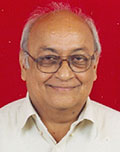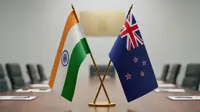Nobody's Friend
17 May 2008
 The first reports from Jaipur have put the death toll from the serial bomb blasts in Jaipur at 60 dead and 150 injured, but dismal experience tells us that the final tally will be substantially higher. The shock that this has given to the public is indescribable, for it reveals not only the perilous vulnerability of the entire country to acts of pure, hate-driven terrorism, but the increasing sophistication and killing power of the terrorists.
The first reports from Jaipur have put the death toll from the serial bomb blasts in Jaipur at 60 dead and 150 injured, but dismal experience tells us that the final tally will be substantially higher. The shock that this has given to the public is indescribable, for it reveals not only the perilous vulnerability of the entire country to acts of pure, hate-driven terrorism, but the increasing sophistication and killing power of the terrorists.
Although the identity of the killers is still to be established, the similarities between this attack and the one on suburban trains in Mumbai on July 11, 2006 suggests that the perpetrators are indeed members of the Harkat-ul-Jehad-e-Islami (HuJI), as the government has surmised. In coming days there will be the usual chorus of condemnation of the Rajasthan police and of the Intelligence Bureau for having been caught napping, and the usual spate of demands from both to 'do something' to curb the terrorist menace. Such demands invariably force governments to promise to beef up the counter terrorist capabilities of the security forces and improve their information gathering capabilities.
The security forces usually respond to the pressure by diverting the blame elsewhere. In the past decade their favourite whipping boy has been Pakistan's Inter Services Intelligence. The ISI has been accused, with ample justification, of having assisted in the birth of the HuJI, just as it assisted the growth of the Lashkar-Tayyiba into a full-fledged terrorist force a decade ago.
But this is a barren, and ultimately futile exercise. The ISI is playing it with equal vigour, accusing India of stoking rebellion in Baluchistan, but that is not making the task of controlling it any easier. All that the rival establishments have succeeded in doing is to impede the improvement of relations between their countries.
The truth is that when the only motive for murder is hate, and when the killers do not mind whom they kill, there is no way to anticipate where they will strike next. The only way of preventing such attacks is to gain prior information. But that information can only come from the people among who the terrorists seek shelter as they plan , and execute, their murderous attacks.
That is where the real threat to the country lies. For the failure to anticipate the Mumbai train blasts, the attacks in Delhi, Varanasi, Bangalore, Malegaon, Jaipur, and on the Samjhauta Express, shows that there is now an established network of bitterly alienated families in the countries that hate India so virulently that they will assist in acts that could easily lead to the hounding and destruction of their own community.
That kind of rage is not far removed from the rage that is motivating suicide bombers in Iraq, Afghanistan and Pakistan. Its existence in a critical mass of families and individuals in India to provide the killers with secure bases of operation in more and more cities, shows that the complacency Indians feel about the absence of extremism among Indian Muslims is no longer warranted.
The challenge that the security agencies face is daunting. Ham-handed action taken under pressure from the media and public, such as the wholesale detention and questioning of young Muslims after a terrorist attack, is almost certain to more harm than good. For instance, the investigations that followed the Malegaon bomb blast only deepened the alienation of Muslims in the area and enabled the terrorists to achieve a part of their aim.
The only sure way to prevent future attacks of the Jaipur variety is to obtain information before they happen. The police cannot do this without the active cooperation of the Muslim population. They have had a fair degree of success so far. For every successful terrorist attack that the country has suffered, there is at least one other that was averted because the police got a tip-off from someone in the community. The most important was the failed attack on the RSS training camp in Nagpur in 2006. But the police still have a long way to go.
In the long run, terrorism of the kind we are experiencing can only be defeated if the people on whose behalf the terrorists claim they are acting repudiate them and force them to stay away, or inform the police of their plans. But for this the community as a whole must feel that the police, and the majority community are their friends. In the recent past the police has all but lost that image, and not just among the Muslims. To most of us today it is an inefficient, corrupt and high-handed force that regularly preys upon the poor. Add to this the targeting of the Muslim community that follows every terrorist attack, and the task of building trust begins to look like trying to build a house on sand.
An effective anti-terrorist strategy requires us to look even more deeply into ourselves. The police and security agencies only mirror the prejudices of the majority community, and these have become more pronounced in the past two decades. Why has no one in office ever formally expressed regret for the terrible pogroms that have scarred the face of our society , from the Mumbai killings in 1993 to the Gujarat massacres in 2002. Why are Indian courts suddenly handing out death penalties by the dozen, with a predisposition towards singling out the minorities? Indeed so great has been the bias, and so quixotic the rulings, that it has provoked Amnesty International into making a scathing criticism of the Indian judiciary.
India's war against terror has only just begun. But the security forces cannot fight it on their own. If the political leaders of our country, and the public, do their part, we will find ourselves losing it.






















